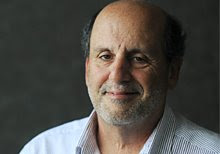There are 106 students at the Performance Learning Center high school on North Graham Street. All had dropped out of school, or were on their way out the door.
The center is a partnership between Charlotte-Mecklenburg Schools and the nonprofit Communities In Schools (CIS) to provide alternative schools for students who have lost their way in traditional settings.
The classes are small. So teachers nurture relationships and make sure their students don't fall through cracks. As CIS Executive Director Bill Anderson said, "kids can't be wallflowers here."
That is why shortly before lunch today, the famed horse-drawn Well Fargo bank stagecoach (actually there are 26 around the country) pulled up to the learning center to the cheers of many of the center's students wearing straw cowboy hats.
The stagecoach had been parked at Wachovia Plaza on South Tryon uptown, where Wachovia, now owned by Wells Fargo, kicked off its United Way campaign with another vote of confidence for Jane McIntyre, the new president of United Way of Central Carolinas.
After McIntyre spoke to a crowd of bank employees, the dog (a Boxer named Jack sat on top of the coach) and pony (four horses pulled it) show rolled out on Tryon and pushed north, then west to Graham Street. Forty-five minutes later, it rolled past cheering students at the Performance Learning Center.
It was not carrying a steamer chest of gold, but it did have a large -- literally -- check for $25,000 that the merged bank turned over to Communities In Schools (see photo above). An hour later, the bank gave Junior Achievement another check for $25,000.
Their giving was symbolic on many levels. For months, many in Banktown have worried about the impact the recession would have on banks and their long history of philanthropy in Charlotte.
But Laura Schulte, a Wells Fargo executive who recently moved to Charlotte as president of East Coast banking for the merged bank, made it clear that keeping the Charlotte region strong is good for business.
"We can't be successful as a company unless the community that we do business in -- and that our employees and customers live in -- is successful," Schulte said. "So it's in our very best interest to have a strong community."
She said the bank supports United Way, but this year is instituting an "open giving" plan which would allow employees to give to the charity of their choice, with some matching fund opportunities and grants to spend time helping charities.
"People today want more choices ... and support what they feel is important," Schulte said. "But we do believe that the United Way concept is important to this community. And Jane (McIntyre) is the right person at the right time to lead its effort. We're not giving up on the United Way."
Communities In Schools, the drop-out prevention program, lost 23.5 percent of its United Way funding, so the $25,000 comes in handy with the nonprofit doubling in size in two years from fulltime site coordinators in 25 CMS schools to 47.
"The fact that Wells Fargo, Wachovia, First Union have long been supporters of CIS, we're extremely appreciative of them recognizing the work we do," Anderson said.
He came loaded with statistics: In North Carolina, 30 out of 100 9th graders won't graduate from high school in four years.
"Society cannot sustain 30 percent not graduating from high school," he said. "The minimum to get a decent job these days and to be financially independent is a high school diploma. So we're really honored that Wells Fargo chose us. They could have chosen any nonprofit.
"It reiterates the importance of proving that outcomes of nonprofits make a difference."






1 comments:
The United Way was unable to help one of our friends with any assistance after her house burned down. This was the same time their leader was making millions per year.
Post a Comment